Anghus Houvouras on the death of cinematic discourse…
Cinematic discourse has been contentious as far back as I can remember. There were always people extremely passionate about film, who would state their opinions with vigour and steadfastly defend them given the opportunity.
Woody Allen famously portrayed the kind of overly zealous cinematic debates that took place between movie lovers in Annie Hall where he shuts down someone claiming to be an expert on the media philosophy Marshall McLuhan by bringing out the man himself who declares “You know nothing of my work.” Allen looks to the audience and declares “If only real life were like this.”
Even in the 1970’s, cinephiles were always looking for an opportunity to dunk on their peers.
The idea of contentious cinematic discourse was popularized by two of the most famous film critics ever to exist, Gene Siskel & Roger Ebert. On the shows they hosted for nearly three decades, these two very intelligent men figured out that what people liked more than anything else was the pure entertainment value in conflict. Those moments when they disagreed on a movie, dug in their heels and waged a war of words with one another until the commercial break.
Siskel & Ebert had a number of lasting impacts on film criticism. First, by popularizing the binary pass/fail mechanic of ‘thumbs up’ or ‘thumbs down’. They laid the groundwork for the critical reality we now exist within where the words of the critic matter less than the final decisive score assigned to a movie, aggregated by sites like Metacritic and Rotten Tomatoes into an easily understandable score. Another major impact they had was normalizing the idea that cinematic disagreements required friction.
It wasn’t enough for a critic to simply enjoy or not enjoy a movie. The entertainment value came from a passionate defense and a vitriolic assault of the person sitting across the aisle. And if they both greatly disliked a movie, they turned their indignation towards filmmakers and actors. Siskel, Ebert and the producers of their shows were well aware the formula for good television is not measured restraint.
The age of internet film criticism took the concept of film friction that Siskel & Ebert perfected and turned it up to eleven. In the old days of Usenet message boards and the early film sites like Coming Attractions and Ain’t It Cool News, contentiousness became a currency. It wasn’t enough to simply like a movie. The film had to be lauded as the greatest thing ever. Concurrently, it wasn’t enough to simply not care for a film. It had to be destroyed and the filmmaker castigated.
Online film critics simply couldn’t dislike a movie; they had to try and eviscerate the movie with phrases like ‘cinematic abortion’ or compare the watching experience to seeing the burnt corpse of a loved one. Under the guise of anonymity, some of the most popular online film critics would wage personal assaults on the directors and studio executives with the kind of histrionic trolling that would soon become the norm on copycat sites across the internet.
This era of cinematic discourse I refer to as the “Masterpiece of Piece of Shit Era” where films were both unfairly condemned and commended.
So you have decades of friction filled film discussions becoming the norm and that was before social media turned everything into a complete nightmare. Siskel & Ebert popularized the concept of a ‘pass/fail’ film rating and contentious conversations as entertainment. Early internet sites took that level of contempt and said “Hold my beer”. Social media reduced the character count where people would only use the most reactionary words to try and get their point across in a limited number of characters. So by the mid 2010s, film discussions were already in a terrible place. At least for those seeking out conversations about film that didn’t turn into two raging animals hurling excrement at one another.
It was around that time I said this on Twitter:
“Twitter is the death of discourse.”
Sadly, that isn’t just reserved for film discussions. Everything has become a virtual shouting match.
The most recent turn in the death of cinematic discourse has come courtesy of Disney. Not by anything they’ve actively done, but simply by becoming the formulaic factory where the vast majority of pop culture products are produced. And therefore, the overarching umbrella for the majority of cinematic discussion.
I noticed something in the water of the world wide web when the polarizing Star Wars: The Last Jedi came out. Some people absolutely loved the movie. Others absolutely loathed Rian Johnson’s attempt at taking the franchise in a new direction. And while there were many different reasons why people liked or disliked the movie, those measured criticisms were ignored and everything was reduced to simple conclusions that could be argued about ad nauseum. A strange cultural crux was introduced that turned the discussion around The Last Jedi into something more than the movie itself.
Those who enjoyed The Last Jedi could easily dismiss the criticism of those who didn’t because a narrative emerged that the negative opinions on the film came down to racism and misogyny. The hateful ramblings of those who refuse to accept a newer, more diverse cast of these new sequels. While those who hated The Last Jedi could disregard any positive posits as nothing more than ‘Woke Film Fans’ pushing a political/ideological agenda that was more focused on ‘the message’ than ‘the movie’.
The final death blow for cinematic discourse has come from a new era of perpetual politicization where the discussion has become more about what a movie or show represents than the actual potential merit of the movie or show. The entertainment value or lack thereof is simply one part of a much larger conversation that feels somewhat inconsequential when discussing a disposable piece of entertainment designed to make you try and forget about the problems plaguing the real world for a couple of hours.
As a movie critic/columnist of over 20 years, my philosophy of criticism boils down to this: A good critic reviews everything between the opening titles and the closing credits.
Everything else is superfluous. The overall critical reception, how much money the movie made, the lead actor’s religious leanings, the scandal involving the head of the studio and stint in rehab… None of this contributes to conveying what you liked or disliked about the actual movie. The death blow to discourse comes from film fans no longer being interested in opinions that are different than their own. Movie lovers who only want to exist in an echo chamber and not have their opinions challenged. Because somehow we’re at a point where the movies and shows you watch are part of an ever-evolving tapestry of identity and personal ideologies.
And frankly, it’s boring. Boring because I enjoy discussing movies and the conversation around them. I’m one of those people who used to enjoy discussing movies over dinner and drinks with friends and hearing their thoughts on the movie itself. Instead of online where every new show is just another piece of ammunition to be used in an unwinnable culture war. Where misguided souls wait to utter the phrase “GET WOKE GO BROKE” or on the other side of the spectrum where people throw around words like ‘racist’ or ‘misogynist’ because someone thought Star Wars: Obi-Wan Kenobi kind of sucked.
I’m not sure if there’s a way back. As a society, we seem way too invested in arguing about our personal ideologies and entertainment is merely another facet. I’d like to hope there’s a future where people can discuss movies in a sane and rational manner. Where bad faith actors aren’t popularized for demonizing ‘woke content’ and film fans don’t naturally assume someone not liking a movie or show boils down to an antiquated mindset.
I miss those days of talking about movies and shows with other people and listening to opinions that challenged my own. Where the conversation was focused on what happened between the titles and the credits and not where the project fits into your own personal political perspective. Movies, and the subsequent discourse between film fans, was once an enjoyable, much needed escape from reality. Not anymore. And that, my friends, is disappointing.
Anghus Houvouras
"discourse" - Google News
August 15, 2022 at 12:43AM
https://ift.tt/YwApxyH
The Death of Cinematic Discourse - Flickering Myth
"discourse" - Google News
https://ift.tt/rJfon7x
https://ift.tt/X0FwuiZ
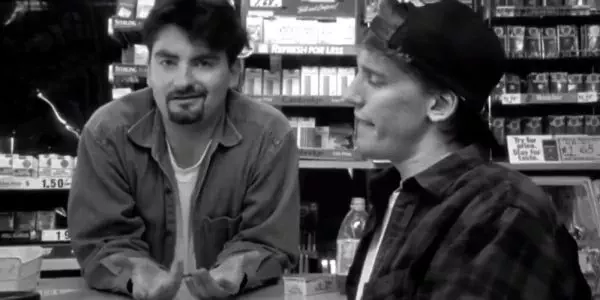
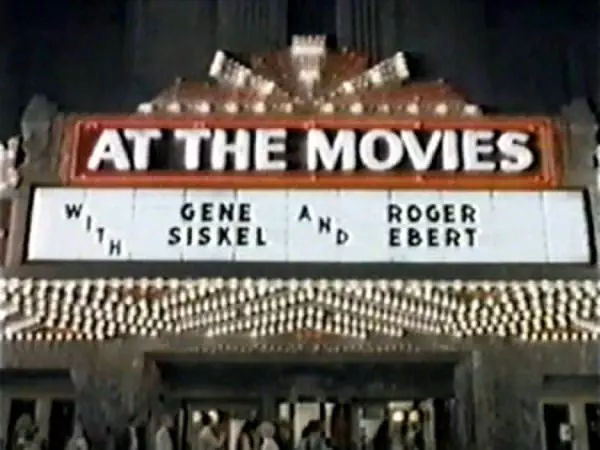

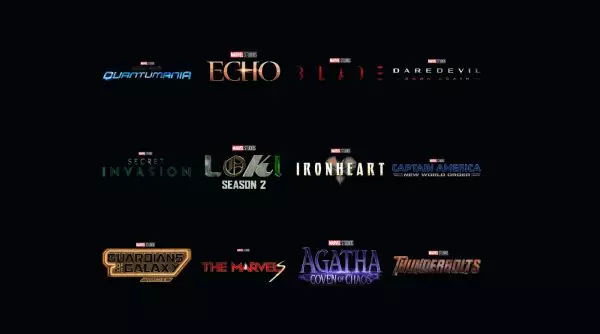
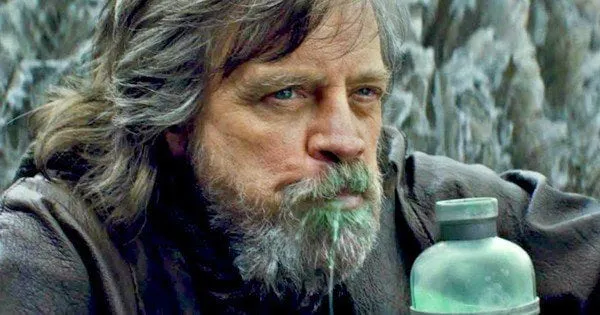
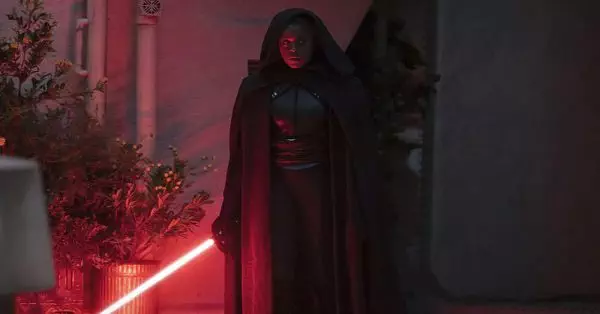
No comments:
Post a Comment